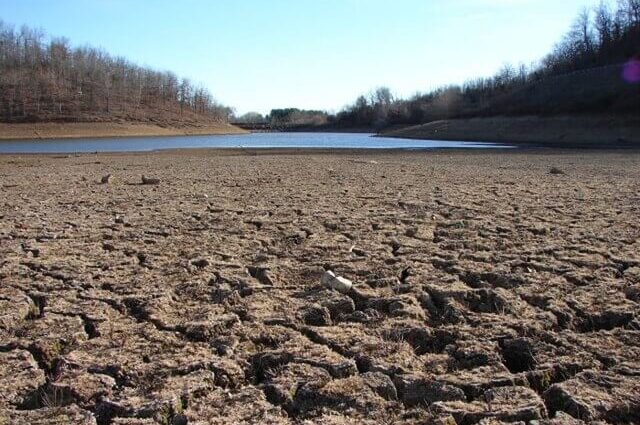
New research from the World Resources Institute (WRI) has brought to light a dire situation, where 25 countries, home to approximately a quarter of the global population, are grappling with severe water stress. The data reveals that these nations consistently utilise 80% of their annual water supplies. This alarming trend is part of a broader global issue, as the Aqueduct water risk map by WRI indicates that water demand has more than doubled since 1960.
While Europe and the United States have managed to stabilise water demand, Africa is witnessing an alarming surge in the need for this precious resource. By 2050, the global demand for water is projected to rise by 20% to 25%. The severity of water stress is profoundly impacting these nations, jeopardising both economic growth and food production.
The five countries experiencing the highest water stress levels are Bahrain, Cyprus, Kuwait, Lebanon, and Oman. Saudi Arabia, Chile, San Marino, Belgium, and Greece also feature prominently on the list. On a global scale, around 4 billion people, representing half the world’s population, endure extremely high water stress for at least one month each year. This number could escalate to nearly 60% by 2050.
“Living with this level of water stress jeopardises people’s lives, jobs, food and energy security. Water is central to growing crops and raising livestock, producing electricity, maintaining human health, fostering equitable societies and meeting the world’s climate goals. Without better water management, population growth, economic development and climate change are poised to worsen water stress,” the report’s authors say.
According to Aqueduct’s data, 31% of global GDP, valued at $70 trillion, will be exposed to high water stress by 2050, marking a significant increase from 24% ($15 trillion) in 2010. Four countries – India, Mexico, Egypt, and Turkey – are predicted to account for over half of the exposed GDP in 2050.
The detrimental effects of heightened water stress extend beyond economic growth, impacting food production significantly. The research indicates that 60% of the world’s irrigated agriculture faces extreme water stress, particularly crops like sugarcane, wheat, rice, and maize. With a projected global population of 10 billion by 2050, the world will need to produce 56% more food calories than in 2010 to meet the growing demand.
The repercussions of water stress are evident in various sectors. In India, for example, a shortage of water for cooling thermal power plants between 2017 and 2021 resulted in the loss of 8.2 terawatt-hours of energy – sufficient to power 1.5 million Indian households for five years.
The report offers a glimmer of hope by highlighting that interventions can prevent water stress from escalating into full-blown water crises. Successful examples, such as Singapore and Las Vegas, demonstrate that even under severe water-scarcity conditions, innovative techniques like desalination, wastewater treatment, and reuse can help communities thrive. However, these solutions necessitate political will and proactive efforts to enhance water efficiency, ultimately reducing water stress. The situation remains critical, urging nations to prioritise and address this pressing global challenge.
The 25 most water-stressed countries, as identified by the WRI, include Bahrain, Cyprus, Kuwait, Lebanon, Oman, Qatar, the United Arab Emirates, Saudi Arabia, Israel, Egypt, Libya, Yemen, Botswana, Iran, Jordan, Chile, San Marino, Belgium, Greece, Tunisia, Namibia, South Africa, Iraq, India, and Syria.
——————————————————————————
At Natural World Fund, we are passionate about stopping the decline in our wildlife.
The decline in our wildlife is shocking and frightening. Without much more support, many of the animals we know and love will continue in their decline towards extinction.
When you help to restore a patch of degraded land through rewilding to forests, meadows, or wetlands, you have a massive impact on the biodiversity at a local level. You give animals a home and food that they otherwise would not have had, and it has a positive snowball effect on the food chain.
We are convinced that this is much better for the UK than growing lots of fast-growing coniferous trees, solely to remove carbon, that don’t actually help our animals to thrive.
This is why we stand for restoring nature in the UK through responsible rewilding. For us, it is the right thing to do. Let’s do what’s right for nature!
Donate today at https://naturalworldfund.com/ and join in the solution!

